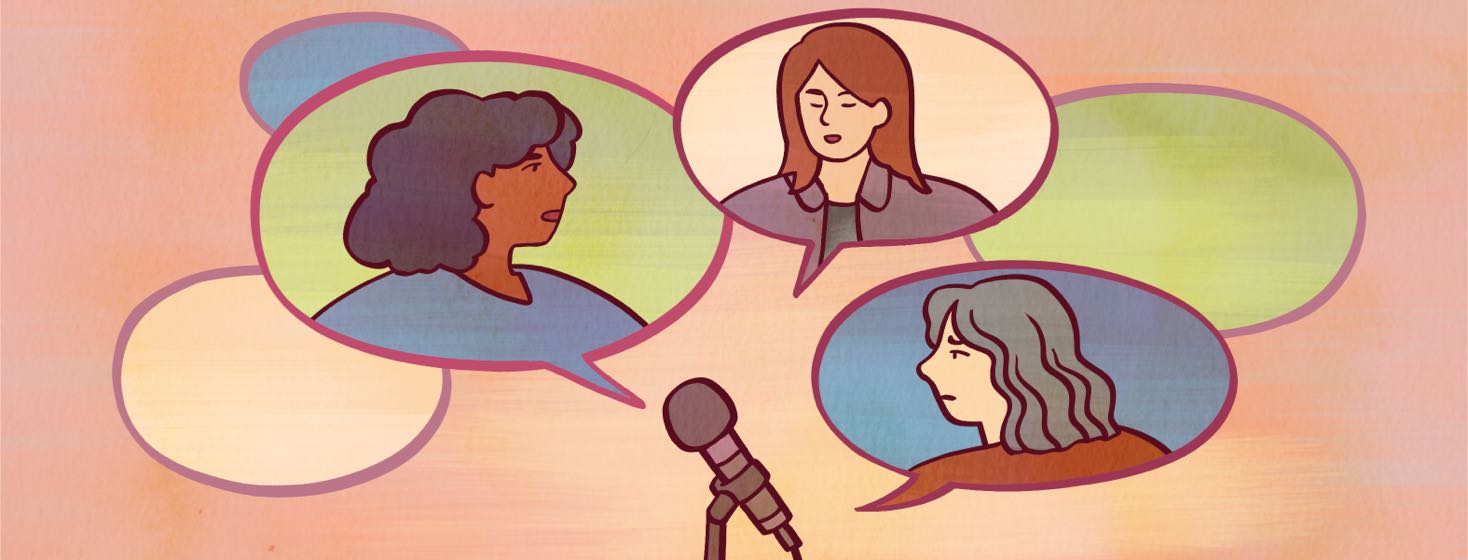Why Aren't We Talking Enough About Postpartum Depression?
Embarking on the journey of motherhood is painted as this beautiful, joy-filled experience, and for many, it undoubtedly is. Yet, the unspoken truth lingers beneath the surface. Why is it that so many OBGYNs aren't shining a light on the commonality of postpartum depression (PPD)? Becoming a mother brings a whirlwind of emotions, but it's not always the idyllic picture painted in magazines.
So, here's the perplexing question: Why aren't more healthcare providers ensuring new mothers are armed with this crucial knowledge about PPD?
Educating about PPD warnings signs is essential
A narrative woven with emotion and grit, the journey of postpartum depression is more than statistics – it is the untamed storm new mothers might find themselves stranded in. Colored in solitude and unease, symptoms ranging from profound sadness to relentless anxiety turn the canvas of new motherhood into a turbulent sea.
For those who've weathered this storm, the baby's first cry, once the herald of joy, can transform into a haunting echo challenging the essence of love and strength. Yet, tales of resolution in despair, partners who steer through the night, and professionals who shine a guiding light underscore the essence of this rewritten testament.
An overlooked side of new motherhood
It's not just about the mother. There's a profound ripple effect on her child and partner, where the lack of positive parent-child interaction chips away at the foundation of growth. These are not just numbers but narratives that warn of delays, dissatisfaction, and potential breakages in the tender threads of family life.
The retelling of this journey is a reflection of the generational impact postpartum depression holds. With the proper awareness and support, the color can be redrawn in the tapestry of maternal bonds, restoring the picture to one vividly rich in love and vibrant in human connection. And this is why, more than ever, PPD warnings signs are crucial lifelines, pointing back to the sound of a child's laughter and the promise of hope.
Breaking down the "perfect mother" myth
One of the most significant barriers to recognizing and addressing PPD is the societal pressure placed on new mothers to appear happy and content at all times. The myth of the "perfect mother" who is supposed to effortlessly handle all aspects of motherhood can leave many feeling guilty and ashamed for struggling with PPD.
In reality, becoming a mother is a significant life change that can be overwhelming and challenging physically and emotionally. It is crucial to recognize that experiencing PPD does not make a woman any less of a mother or diminish her love for her child.
The healthcare system's role: screening for PPD
While PPD is a severe mental health condition, it often goes undiagnosed due to inadequate screening during pregnancy and postpartum check-ups. Many healthcare professionals are also not trained in recognizing the signs and symptoms of PPD, leading to missed opportunities for early intervention.
The healthcare system plays an essential role in educating and supporting mothers about PPD. Healthcare providers need to have regular discussions with expecting and new mothers about their mental health and provide resources for support. It is also essential to have proper training on identifying and managing PPD to ensure timely intervention and treatment.
We need more open conversations
As a new mother who has experienced PPD, I can attest to the lack of awareness and support surrounding this condition. When I first started feeling overwhelmed and anxious after giving birth, I was hesitant to speak up because I didn't want to be seen as a "bad" mother. It wasn't until I opened up to my healthcare provider and sought support that I was able to manage my PPD.
I also found comfort in talking to other mothers who had similar experiences, realizing that I wasn't alone in my struggles. This highlights the importance of more open conversations about PPD among healthcare professionals and within communities.
Why PPD goes unnoticed
Apart from societal pressure and inadequate healthcare practices, there are other barriers to PPD awareness. Many new mothers may not be aware of the signs and symptoms of PPD or dismiss them as everyday postpartum struggles. Additionally, there are still stigmas surrounding mental health in many cultures, making it challenging for women to seek help.
Moreover, access to mental health resources can also be a barrier, especially for low-income and marginalized communities. This highlights the need for more affordable and accessible mental healthcare options for new mothers.
We need awareness, education, and screenings
It is time to break the silence and stigma surrounding PPD. As a society, we need to recognize that experiencing PPD does not make a woman weak or unfit to be a mother. We also need to support and empower new mothers by providing them with the necessary resources and information to manage their mental health.
For healthcare professionals, it is essential to be more proactive in screening for PPD and providing appropriate support and treatment options. It is also crucial to involve partners and family members in the conversation about PPD, as they play a significant role in supporting a new mother's mental well-being.
Postpartum depression is not a weakness
Remember, experiencing PPD is not a sign of weakness. It takes courage to seek help and prioritize your mental well-being. You are not alone, and with the proper support, you can overcome PPD and be the best mother for your child. Together, let's break the stigma and raise awareness about postpartum depression.
Finally, for those who are not personally experiencing PPD, it is essential to be understanding and supportive of those who are. Offer a listening ear and show empathy towards their struggles. Let's break the "perfect mother" myth and promote honest conversations about the challenges of motherhood.
